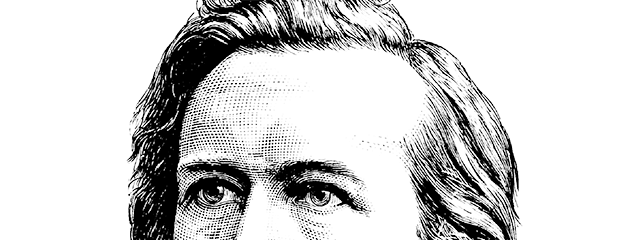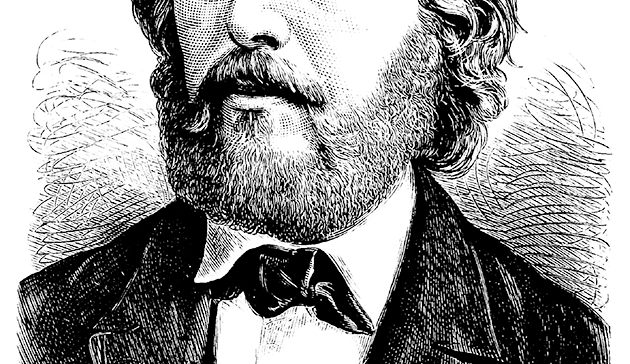TYPEWRITER SILENCER MFRS.
(INVENTORS AND SOLE OWNERS)
319 HOMER LAUGHLIN BUILDING, LOS ANGELES, CAL.
October
first
Nineteen-twelve
Professor Ernst Haeckel
Jena, Germany
My dear Professor & Teacher:
Your letter, the pamphlet and autographed photograph of yourself were recieved some time ago -- the first part of last month, but an attack of illness put me on my back for three weeks, causing a suspension of works for several weeks on my part -- and they will remain my dearest possessions as long as I live; other than the pamphlet, which has been stolen out of my room while I was hors de combat. The thief also took the duplicate ms. of a History Of The United States that I had just completed, as well as an autographed copy of my friend, General Homer Lea’s recent book, The a Day of the Saxon. Fortunately the original ms. of my History was in the printers hands but the loss of your pamphlet has given me great displeasure. I dislike to have to ask you to mark another for me but I hope you can, still I should be highly gratified to get another. The loss is not going to hinder me in prosecuting the work of securing the necessary co-operation to publish an edition of your works as outlined in your letter and in the pamphlet. I have McCabe’s translation of the Life, which gives a full list, it with the aid of your letter will suffice even should I not get a duplicate of the pamphlet from you. My friend, Hudson Maxim, the inventor, writes me that he will assist me in the good work. He writes: „I agree with you that Haeckel’s complete works published in English is a crying need of modern civilization, and I agree with you also as to the greatness oft hat masterful man. He is an intellectual Colossus. He is brave and walks in the middle of the road.“ I feel confident that we will perfect an organization with enough capital to make the necessary translation and to publish the set in about 22 to 25 volumes. In donot minimize the largeness and seriousness of the undertaking, hence the ||
#2 Haeckel
wisdom of first organizing a strong and sympathetic company to make the edition an honor to the author. Now that I am well again -- as well as I ever shall be -- you will hear from me from time to time as my work progresses.
I have just an hour ago read the full text of Professor E.A. Schaefer’s speech delivered in Dundee. My first impression was: if Schaefer had made an abbreviated, abridged pharaphrase[!] of yourb Evolution of Man he would not have expressed himself otherwise than he has, other than on a few minorc points, as, reference to Loeb’s artificial fertilization and Starling’s d hormones; then I wondered, would you be amused and gratified just as I am. May be both. It is just 46 years since you gave to the world all that is now sustained by the President of the British Association of Science. Copernicus was right, the world does move. I know that that you feel exactly as did your friend, Charles Darwin, in regard to priority and that you will welcome Schaefer’s speech. In my opinion this gives the whole supernatural, dualistic school its congé. What has Schaefer left that school of thought; his last words are, „We can only be immortal through our descendants?“ There is one sentence in Schaefer’s speech, this one: „There is already some differentiation in these organisms ( -- e.g. the gastrula -- ) but the absence of a nervous system prevents any general co-ordination, and the individual cells are largely independent of one another, thate I think is too Brutis-like. Indeed his further explanation demonstrates I believe that the cell, the Chromocea for example, must be as much a nerve as it is anything else. In other words it is irritable -- sensation -- and were it not so there never could have been an aggregation of cells to form a person of any order. My own view is that function and structure developes pari passu or simultaneously: that Nature--Cosmos--abhors lines of demarcation; that all such are relative, invented by man for classification and guidance. To me ||
#3 Haeckel.
Cosmos, the All, IS, ever has been and ever will be just as it is now, plus constant, continuous change of forms. That there never was a Beginning and there never will be an End; that Time is a relative term and cannot be applied to the All; that Philosophers like Spencer would have done better work had they recognized this postulate, for then there is no place for an Unknowable, from which all things proceed, nor for a Nothing from which the All has been created, nor for Motion nor Ether nor Corpuscles as the beginning of forms. That the verbal Trinity of Energy, Matter and Irritability are the three phases of Substance, which is the Universe. That, if corpuscles -- electrons -- are celibates goes far to sustain the postulate that ether, corpuscles, atoms, molecules, cells and persons, planets and stars and so forth have ever been as we look at them to-day and ever will be, evolving and disintegrating exactly as now: in other words, evolution is relative and cannot be applied to the absolute All. f It is to my mind an absurdity to imagine that the Universe evolved out of an Unknowable or Nothing and that itg is bound to disintegrate back thereto. These are my reasons why I think Schaefer has not that complete and comprehensive conception of the Cosmos and of life that you have. He seems to still function a trifle from the old exploded teleological doctrines, for why does he drag in this: „we are led to regard it (evolution of living matter) as having been produced, not by a sudden alternation, whether by natural or supernatural agency (italics mine) but by a gradual process of change.“ If consciousness ceases at death, as he says it does, what is the use of a supernatural? However, Schaefer has done a man’s day of work and I glory in it. I am also pleased that his name is Teutonic. He has made another good reason for an edition de luxe of Haeckel. Now if the other great Institution of Science fall in line, Ultramontanism must come over too. It is good to be alive to-day. ||
#4
I sincerly hope that you are having better health than when you wrote me. I know and can appreciate what sickness means, for more than 60 years I have been, as Shakespeare says, „ h servial to every skyey influence.“ I blame the Sun spots; was’nt it Alexander Humboldt that first showed that the Sun spots affected the electro-magnetic condition of our atmosphere? A priest -- R. C. at that -- claims to have discovered how to predict atmosphere changes by the Sun spots. At any rate, I observed his predictions closely and found that his dates and my physical pain happened together. It is ai pity that pathologist have not given more study to this question. I notice in the recent dispatches that a Dr. Nagleschmidt of Berlin has discovered a form of j electricity or a device, which when placed or applied at the base of the brain will produce sleep and will remove pain. I wish he would make haste to get it in operation in California. Again thanking you and with affctionate regard, I remain,
Sincerly and cordially,
Robert J. Belford.
Not dictated
R. J. B. ||
a gestr.: Saxon; b korr. aus: yours; c korr. aus: minior; d gestr.: homon; e korr. aus: this; f gestr.: as an; g eingef.: it; h gestr.: sevial; i eingef.: a; j gestr.: elecrti; k eingef.: an


